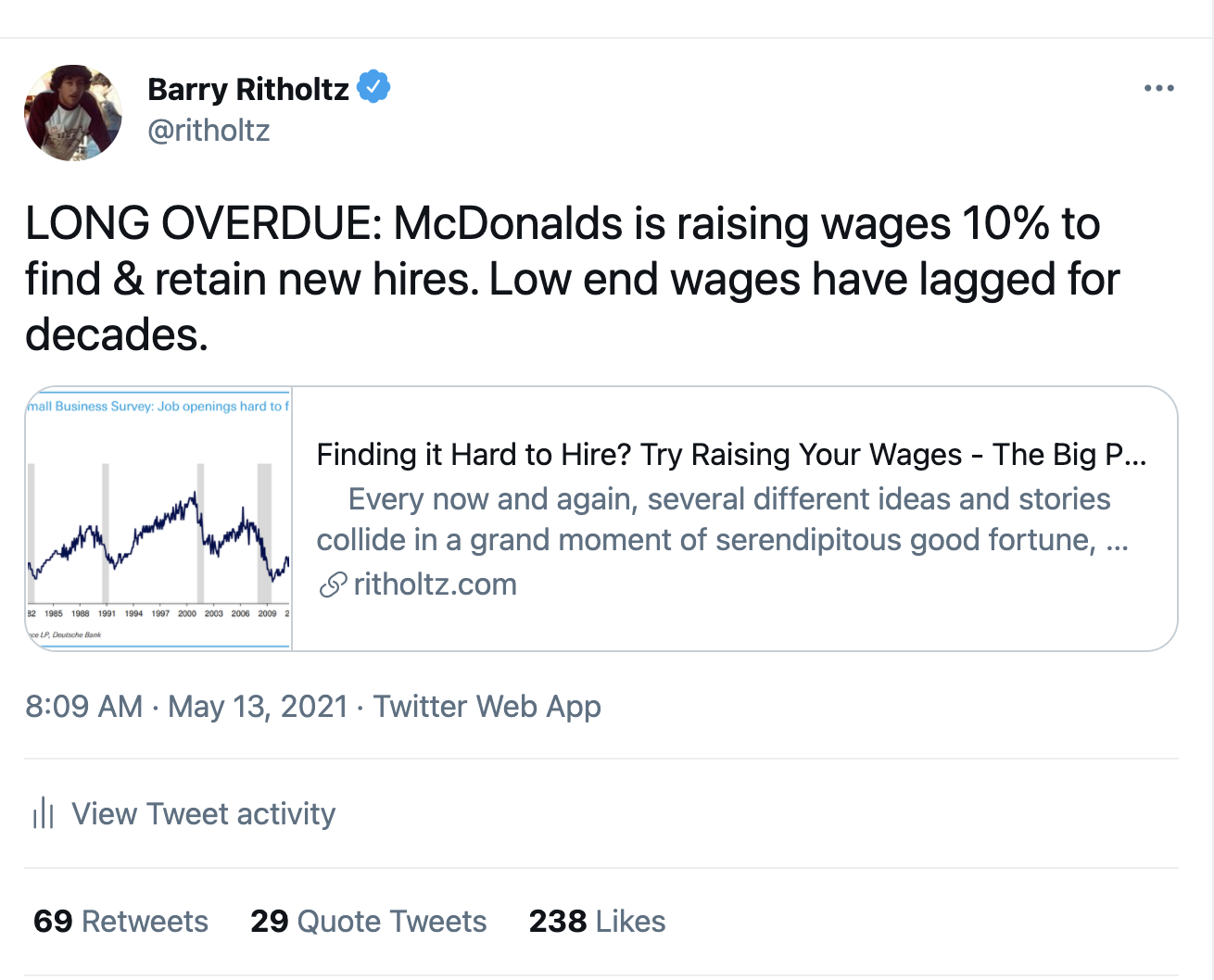This morning I went off on a bit of a digression about McDonalds raising wages and how that manifests across the economy. They have come a long ways from back when they were having taxpayers subsidize their payrolls via their McHelp line.
But my Tweetstorm raised as many questions as it answered.
If I were teaching Econ101, I would use McD’s actions as a jumping off point for class discussion. (And yes, these issues will be on the exam). I’ll go a step further and give you the questions for the midterm exam:
Employment / Inflation Questions
Why have low end wages lagged for so long?
There have been significant State Minimum wage increases the past decade — what has their impact been?
What does increasing the National minimum wage do to job creation? Economic activity? Inflation?
What are the key differences are there between state and local min wage policies?
How have some companies (CostCo, Trader Joe’s, Target, Starbucks, etc.) been able to pay higher wages than their competitors?
What are the costs associated with Recruitment, Retention, and higher than average Turnover?
It appears that some Employers have been reluctant to raise wages. What is the role of anchoring as a n economic and cognitive issue?
Who are Employers competing against for workers?
What is the mechanism Capitalism uses to set prices, including wages?
Who determines what the minimum wage is? (Show your work)
What is the impact of rising wages at the low end of the income spectrum ?
What was the impact of the Great Financial Crisis (GFC) on employment over the next decade?
What was the impact of Austerity policies in the UK post GFC?
How did the US Monetary Stimulus affect the economy post GFC in terms of credit, asset prices, wages and employment? And other effects worth noting?
What has been the effect of the massive Fiscal stimulus during the pandemic?
How big of a danger is inflation today?
Hand in your exams to the TA; you will be graded on a standard curve.


